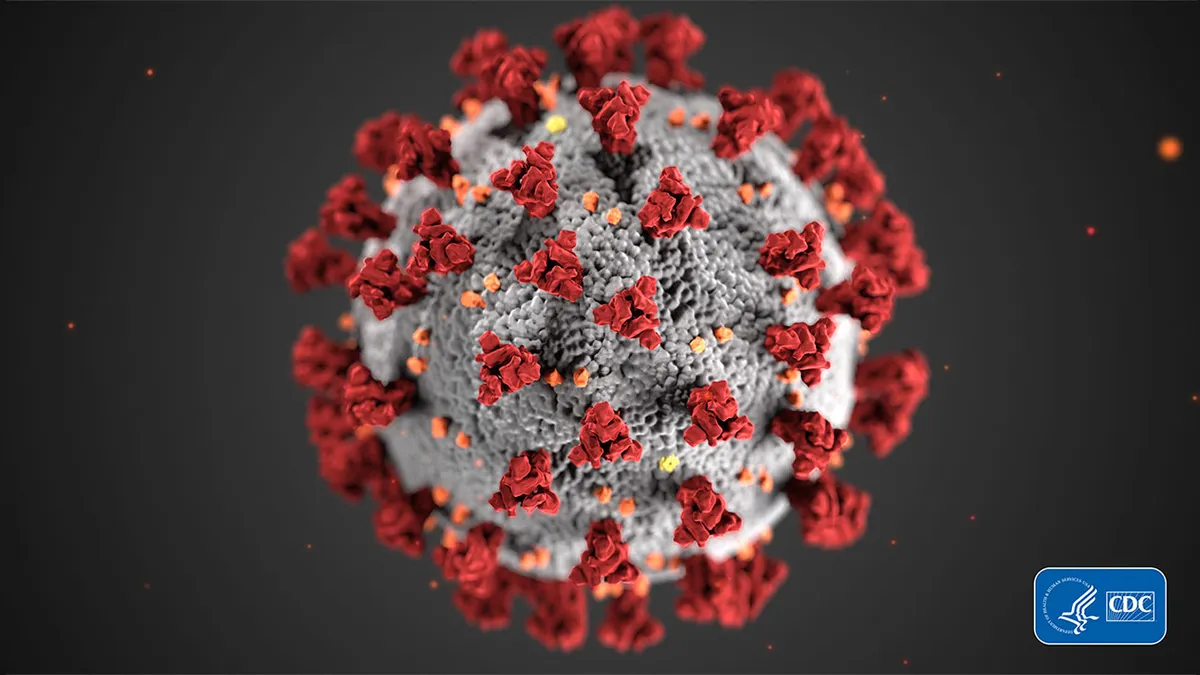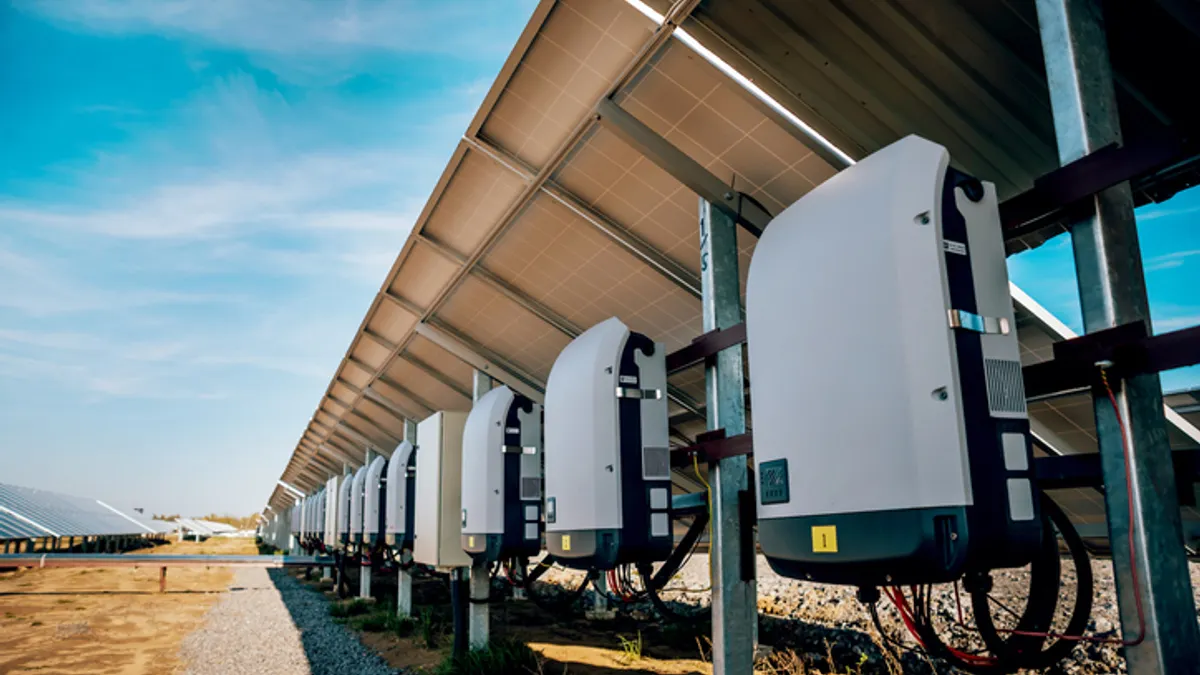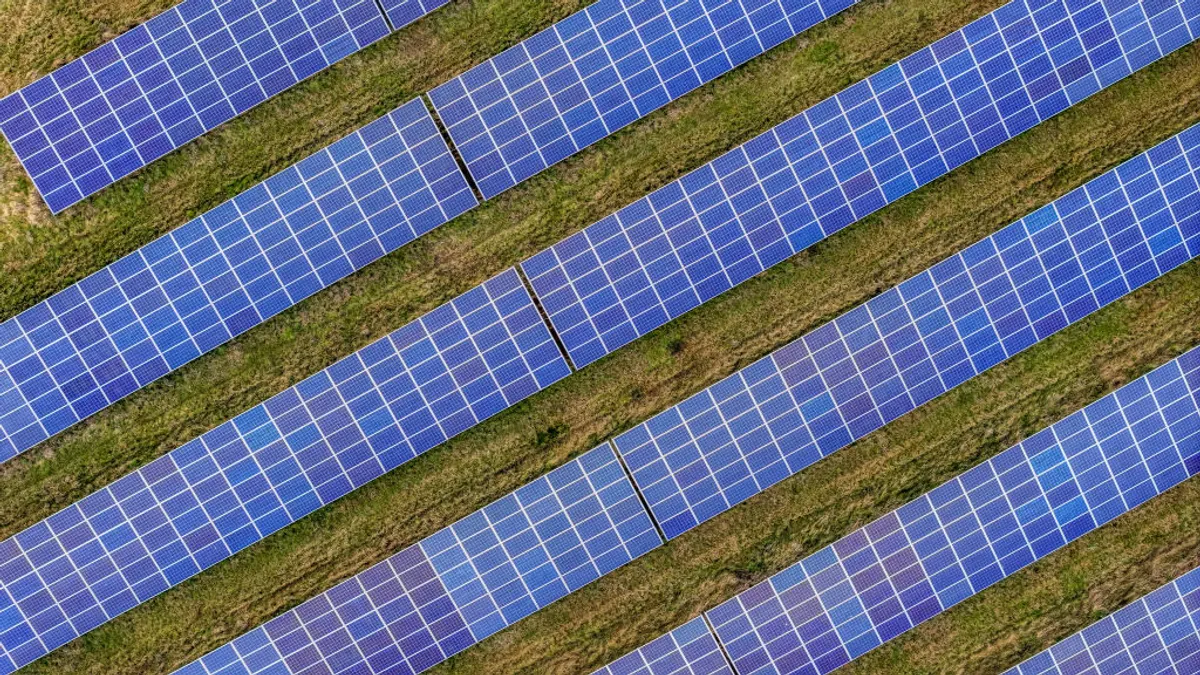Dive Brief:
- The COVID-19 pandemic is forcing utilities to determine in real time how to keep capital projects on track and provide critical services as an unprecedented number of employees are forced to work from home, according to a Thursday panel discussion by executives representing several major utilities around the country.
- Delays in capital projects, like transmission and distribution grid upgrades, may come after a lag as supply chain difficulties catch up to planning schedules, some of the executives reported in the Clarion Energy online talk on utility crisis management.
- NV Energy, the largest energy provider in Nevada, has started to receive force majeure letters from renewable energy projects that were supposed to go online in the fourth quarter, but the utility has not accepted the potential delays and is working with developers to keep the projects on track, NV Energy Director of Grid Operations & Reliability Josh Langdon said.
Dive Insight:
"There is no existing playbook that we have to reference to give us direction to move through this crisis," Gary King, chief workforce officer for the Sacramento Municipal Utility District (SMUD), the 6th-largest publicly-owned utility in the U.S., said during the panel discussion.
Utility crisis management teams are being tested to come up with creative strategies on the spot that can minimize potential coronavirus exposure to employees and the public while still allowing utility workers to go out into the field and perform critical tasks like restoring power after outages.
For example, the Snohomish County Public Utility District (PUD), whose territory north of Seattle includes some of the first cases of COVID-19 in the U.S., has been tracking outage restoration crews and keeping all members together as intact teams — meaning if one member of the team comes down with the virus, "cross-contamination" has been minimized since that employee has been working with the same people.
Due to the pressures on personnel availability, the publicly-owned utility has had to stop field work besides outage restoration, the Snohomish County PUD’s senior manager for work and asset management Tim Epp said.
Other executives on the panel reported drastic shifts toward telework, including for positions that were never expected to have to go virtual. "We are even looking at distribution operators [working] from home. These were unthinkable six months ago," Langdon said of NV Energy.
These new limitations are forcing difficult decisions about what to prioritize. "We did have an outage at a combined-cycle plant that went off at the beginning of this event," Paul Tartaglia, senior vice president of technology and innovation at the New York Power Authority, said. "To help minimize that risk, we first cut the scope of the outage down significantly to only those things that would be considered essential to getting us through the summer operational period. We went down from the 'nice to have' stuff to the 'have to do' stuff."
Some of the full impacts may not be seen until later this year. According to Langdon, NV Energy has been able to keep pace with its large transmission capital projects in part because procurement had already taken place, so the supplies needed for the projects were already on hand. But after the summer, projects that have not yet gone through procurement may face supply chain issues, he said. The utility has already found it difficult to procure new transformers from China, he noted.
SMUD is deferring any infrastructure projects that were planned based on the assumption of projected growth in the utility’s service territory, since that growth is now uncertain. "Where we do have automated systems on the grid that give us the status of equipment and energy, we are using that to determine certain maintenance activities that can be deferred because we know the condition of the equipment or load at certain areas," King said.
Utilities are also facing revenue declines as customers shift their electricity use. Load profiles now resemble weekend load profiles every day, several of the utilities reported. King said that for SMUD, he expects impacts similar to the revenue reductions of anywhere from 8% to 14% experienced by utilities in Europe, where coronavirus cases spiked a few weeks earlier than in the U.S.













